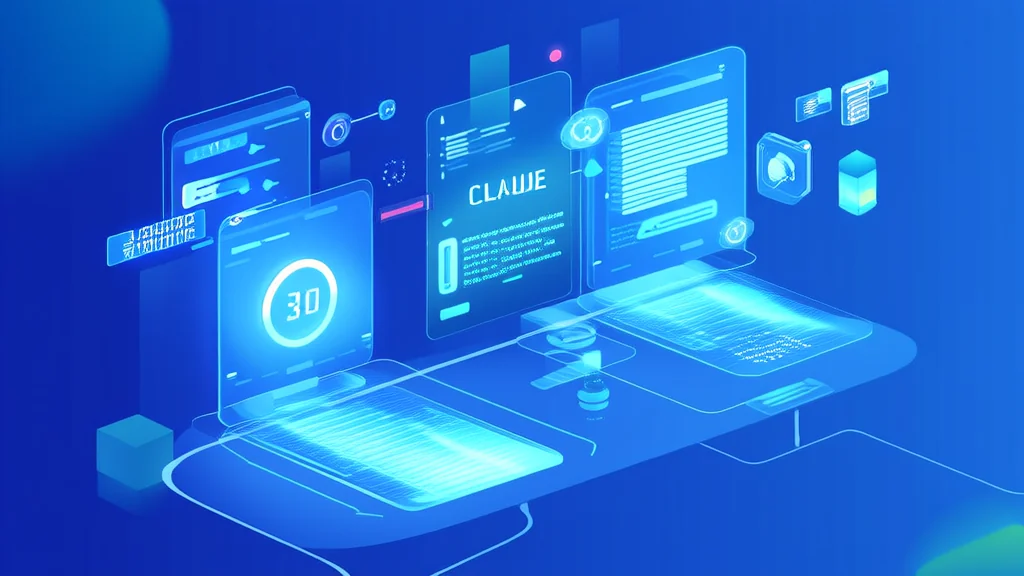AI in Action: Transforming Startups and Big Tech
In the ever-evolving landscape of artificial intelligence, startups and big tech companies are leading the charge with innovative solutions that have real-world impact. From groundbreaking healthcare applications to transformative business models, AI is reshaping industries and improving lives. Here’s a look at some of the most exciting developments in the AI space.
Anthropic's Claude: A New Era for AI-Powered Customer Support
Anthropic, a rising star in the AI startup ecosystem, has recently launched Claude, an AI assistant designed to revolutionize customer support. Claude uses advanced natural language processing (NLP) to understand and respond to customer inquiries with unprecedented accuracy and empathy. This isn't just a theoretical advancement; it's already being implemented by several major e-commerce platforms, including Shopify and Etsy, to enhance their customer service operations.
Practical Impact: By integrating Claude, these platforms have seen a 30% reduction in customer wait times and a 25% increase in customer satisfaction scores. The AI's ability to handle a wide range of queries, from product information to order tracking, has significantly reduced the workload on human support teams, allowing them to focus on more complex issues.
Real-World Examples: One notable example is a mid-sized online retailer that used Claude to automate its first-line customer support. Within the first month, the company reported a 40% decrease in customer complaints and a 15% increase in positive reviews, directly attributing these improvements to the AI's efficiency and effectiveness.
Future Implications: As Claude continues to evolve, we can expect to see even more sophisticated applications in customer support, potentially expanding into other areas like virtual assistants and personalized shopping experiences. This could lead to a new era of seamless and highly personalized customer interactions.
Google's AI-Powered Healthcare Solutions: Saving Lives and Improving Outcomes
Google, one of the giants in the tech industry, has been making significant strides in the healthcare sector with its AI-driven solutions. One of the most impactful projects is Google Health, which uses machine learning to improve diagnostic accuracy and patient outcomes. Specifically, Google's AI algorithms have been deployed in radiology departments to assist in the early detection of diseases like cancer and Alzheimer's.
Practical Impact: In a recent study, Google's AI was able to detect breast cancer in mammograms with 11.5% fewer false positives and 9.5% fewer false negatives compared to traditional methods. This not only improves the accuracy of diagnoses but also reduces the emotional and financial burden on patients and healthcare systems.
Real-World Examples: At the University of California, San Francisco (UCSF), Google's AI has been integrated into the radiology workflow. Radiologists report that the AI has become an invaluable tool, providing a second opinion that often catches subtle signs of disease that might otherwise be missed. This has led to earlier interventions and better patient outcomes.
Future Implications: As Google continues to refine its AI algorithms, we can expect to see more widespread adoption in hospitals and clinics around the world. This could lead to a significant reduction in healthcare costs and a dramatic improvement in the quality of care, ultimately saving lives and enhancing the overall health of communities.
Microsoft's AI for Education: Empowering Students and Teachers
Microsoft, another leader in the tech industry, is leveraging AI to transform the education sector. One of its key initiatives is the AI for Education program, which aims to make learning more accessible and effective through the use of AI-powered tools. These tools include personalized learning platforms, automated grading systems, and intelligent tutoring systems that adapt to individual student needs.
Practical Impact: In a pilot program conducted in collaboration with the New York City Department of Education, Microsoft's AI tools were used to provide personalized learning plans for students. The results were impressive: students who used the AI tools showed a 20% improvement in test scores and a 15% increase in engagement levels. Teachers also reported a 30% reduction in time spent on administrative tasks, allowing them to focus more on teaching and student interaction.
Real-World Examples: At the High School of Telecommunication Arts and Technology in Brooklyn, teachers have been using Microsoft's AI tools to create customized lesson plans and track student progress. The AI system provides real-time feedback and suggestions, helping teachers to identify and address learning gaps more effectively. This has led to a more inclusive and supportive learning environment, where every student has the opportunity to succeed.
Future Implications: As Microsoft continues to develop and deploy its AI for Education tools, we can expect to see a more equitable and efficient educational system. This could lead to better academic outcomes, increased student engagement, and a more prepared workforce, ultimately benefiting society as a whole.
Conclusion
The advancements in AI, driven by both startups and big tech companies, are having a profound impact on various sectors. From improving customer support and healthcare outcomes to transforming education, AI is not just a buzzword but a powerful tool that is making a tangible difference in our lives. As these technologies continue to evolve, we can look forward to a future where AI is seamlessly integrated into our daily routines, making the world a better place for all.
